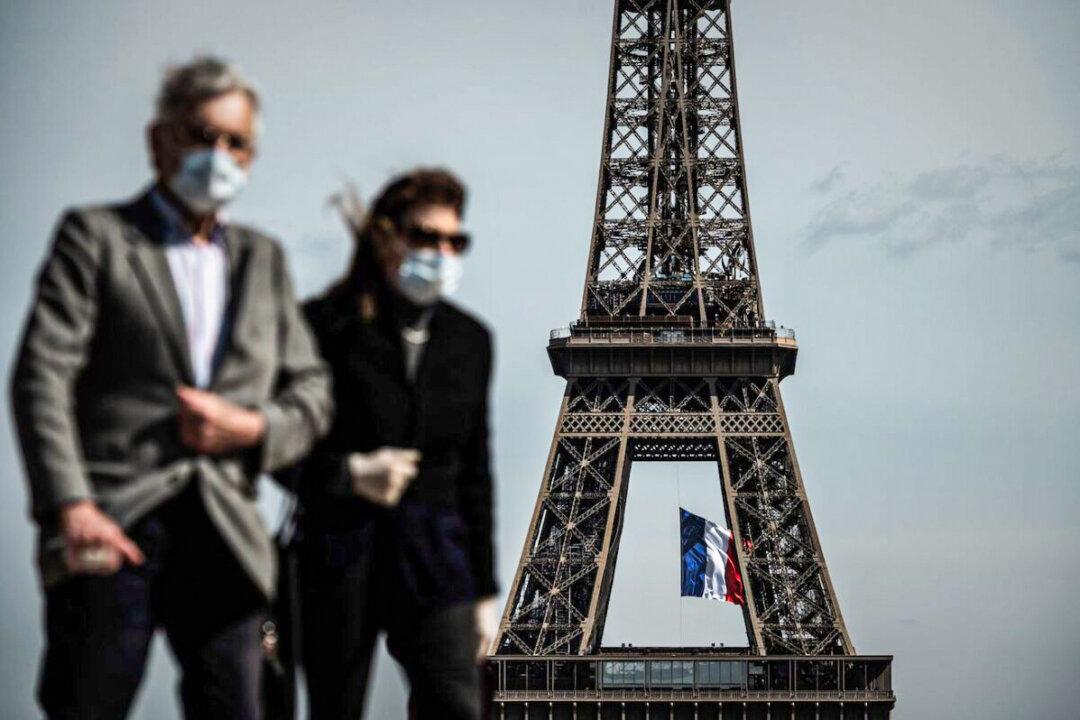The Centers for Disease Control and Prevention (CDC) has raised the travel advisory level for France, Portugal, and five other countries to “Level 4: Very High Level of COVID-19”—its highest classification for COVID-19 risk—advising Americans to avoid travel to these destinations.
France, Portugal, 5 Other Countries at ‘Very High’ Level of COVID-19, CDC Warns in Updated Travel Advisory

A man and a woman wearing masks walk on Trocadero Plaza as a French national flag flies on the Eiffel Tower in background in Paris on May 11, 2020. Philippe Lopez/AFP via Getty Images
Mimi Nguyen Ly
Reporter
|Updated:



